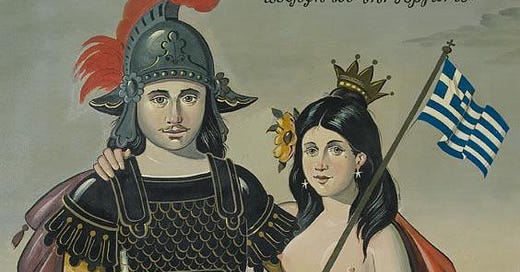This series of Greek wondertales are direct translations from collections gathered by Greek folklorists in the 19th century. They have never been translated into English. Scroll to the bottom for more about them. A new collection drops every Tuesday, and I select the theme to tie in to my long form articles that drop every Thursday. Please consider subscribing to receive these as soon as they come out and support this publication!
1. The Sisters of Alexander the Great
from Felloi Municipality, Kalavryta
When Alexander the Great had conquered the whole world, he went to the spring of the water of immortality, and filled two flasks to wash with and become immortal. When he brought them home, an officer with a grudge against him told his sisters the secret and told them to wash and drink it themselves, and to put ordinary water into the flasks. They immediately took the water and drank it and washed in it and poured the used water into the street.
Keep reading with a 7-day free trial
Subscribe to Thyrathen: Greek Magic, Myth, and Folklore to keep reading this post and get 7 days of free access to the full post archives.





